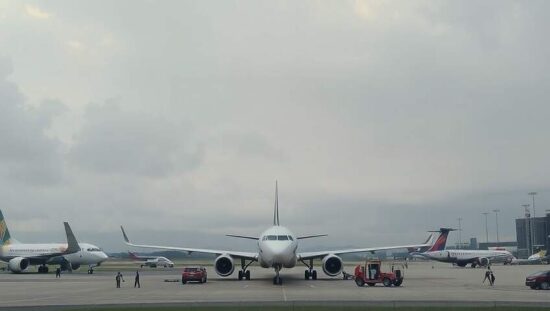The escalating threat of drone interference at airports is sparking a contentious debate, with leading arms manufacturer Hensoldt cautioning against hasty and potentially reckless responses. In an interview with the Frankfurter Allgemeine Zeitung, CEO Oliver Dörre warned that “anyone who simply shoots down without thinking about the consequences acts negligently”. He emphasized the necessity of a holistic approach to security, encompassing detection and responsible neutralization, rather than immediate kinetic action.
The call for decisive action follows recent disruptions at Munich Airport, where multiple drone alerts paralyzed operations. Bavarian Minister-President Markus Söder, of the CSU party, publicly advocated for a “shoot down, don’t wait” policy and subsequently implemented legislation expanding police authority in response. This stance, while politically popular, has drawn criticism, particularly given the potential for uncontrolled drone crashes and the danger posed by falling debris.
Dörre highlighted the cost-effectiveness of implementing comprehensive drone defense systems, suggesting that protecting a major airport like Munich could be achieved for approximately €10 million, encompassing initial investment and ongoing operational expenses. He stressed that viable alternatives to interception, such as jamming radio signals and deploying mechanical capture nets, should be prioritized.
Leveraging the rising demand for drone mitigation solutions among airports, energy providers and industrial complexes, Hensoldt is reportedly developing a new service offering. This would involve providing readily available, on-demand security services, a particularly attractive option for smaller clients lacking the resources to establish independent drone defense command centers.
The company’s recent upward revision of its annual earnings forecast, fueled by anticipated contracts with the German armed forces, sent its stock price surging. This success underscores the growing market for advanced security technologies in a climate of heightened geopolitical tension.
Despite a current industry-wide chip shortage stemming from a supplier failure (Nexperia), Hensoldt asserts that it has, thus far, avoided substantial disruption. While acknowledging the issue’s potential for future impact, Dörre emphasized the critical importance of supply chain resilience and articulated a clear advocacy for the development of a European, China-independent semiconductor supply chain. He positioned this as a matter of both economic and national security, inextricably linked to Germany’s defense capabilities and technological self-sufficiency. The current crisis, he argued, underscores the urgent need for bolstering Europe’s strategic autonomy in a rapidly evolving global landscape.





